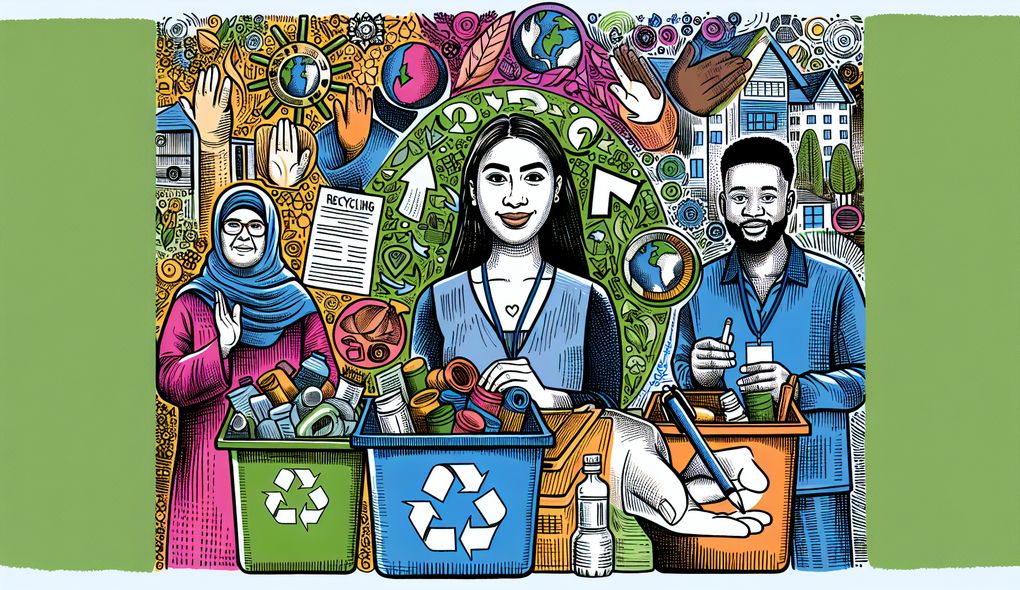How do you prioritize and allocate resources for recycling programs?
SENIOR LEVEL

Sample answer to the question:
When prioritizing and allocating resources for recycling programs, I first assess the current needs and goals of the organization or community. I gather data on the volume of recyclables generated, the available resources, and the budget allocated for recycling initiatives. Based on this information, I develop a comprehensive plan that includes specific targets and strategies to maximize recycling efforts. I prioritize initiatives based on their potential impact and feasibility. For example, if there is a high volume of a particular recyclable material being generated, I would allocate more resources towards initiatives that focus on recycling that material. Additionally, I consider the availability of recycling service providers and their capabilities. I negotiate contracts with the selected providers to ensure cost-effectiveness and efficient operations. Regular monitoring and reporting help me evaluate the performance of the recycling programs and make adjustments if needed.
Here is a more solid answer:
As a Recycling Coordinator, I have developed a systematic approach to prioritize and allocate resources for recycling programs. I start by conducting a thorough analysis of the current recycling practices, including waste audits and data collection. This analysis helps me identify opportunities for improvement and set realistic goals. I then create a detailed plan that outlines specific initiatives, their associated costs, and the expected outcomes. For example, if the goal is to increase recycling rates in the community, I allocate more resources to public education campaigns and outreach programs. To ensure cost-effectiveness, I explore partnerships and collaborations with other organizations to share resources and leverage funding opportunities. Additionally, I use my negotiation skills to secure competitive contracts with recycling service providers. Regular monitoring and evaluation allow me to track the progress of the programs and make adjustments as needed. My strong organizational skills help keep the programs on track, ensuring that resources are allocated efficiently and effectively.
Why is this a more solid answer?
The solid answer provides more specific details about the candidate's experience and skills related to the job. It demonstrates their ability to conduct waste audits, set realistic goals, create detailed plans, explore partnerships, and negotiate contracts. However, it could still benefit from further elaboration and examples to strengthen the answer.
An example of a exceptional answer:
As a Recycling Coordinator with 5+ years of experience, I have perfected my approach to prioritizing and allocating resources for recycling programs. I begin by conducting a comprehensive assessment of the organization or community's recycling needs and goals. This involves analyzing waste streams, identifying areas for improvement, and benchmarking against industry standards. I collaborate with stakeholders to develop a strategic plan that aligns with the organization's mission and sustainability objectives. For example, if the organization aims to reduce landfill waste by 50%, I prioritize resource allocation towards initiatives that directly contribute to this goal. To ensure success, I employ advanced waste industry software and databases to track and analyze data, enabling me to make data-driven decisions. I leverage my strong negotiation skills and vendor management abilities to secure contracts with recycling service providers that offer competitive rates and high-quality services. Additionally, I stay updated on market trends and emerging technologies to identify innovative recycling solutions and make informed recommendations. Regular performance monitoring, analysis, and reporting allow me to continuously evaluate the effectiveness of the recycling programs and make necessary adjustments. My commitment to environmental sustainability and community engagement ensures that the allocated resources generate maximum impact while fostering engagement and participation among staff, clients, and the community.
Why is this an exceptional answer?
The exceptional answer demonstrates the candidate's extensive experience and expertise in prioritizing and allocating resources for recycling programs. It showcases their ability to conduct comprehensive assessments, collaborate with stakeholders, utilize advanced software and databases, negotiate contracts, stay updated on market trends, and track performance. The answer also highlights the candidate's commitment to environmental sustainability and community engagement. It provides a well-rounded and comprehensive response to the question.
How to prepare for this question:
- Research waste industry software and databases to familiarize yourself with the tools commonly used in the field.
- Brush up on your analytical skills by practicing data analysis and interpretation.
- Review the basics of negotiation and vendor management to enhance your abilities in these areas.
- Stay updated on the latest recycling processes, market trends, and sustainability practices.
- Prepare examples of past experiences where you successfully allocated resources for recycling programs.
What are interviewers evaluating with this question?
- Analytical Skills
- Organizational Skills
- Resource Management
- Negotiation Skills
- Sustainability Knowledge

